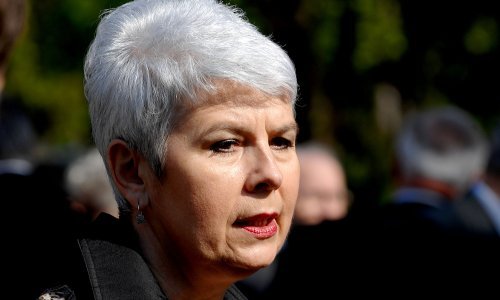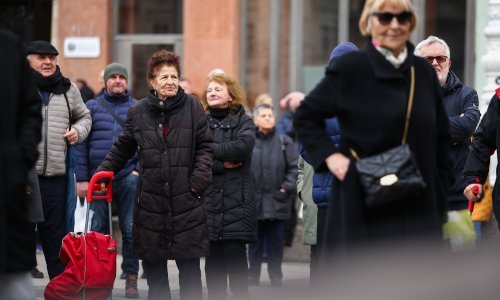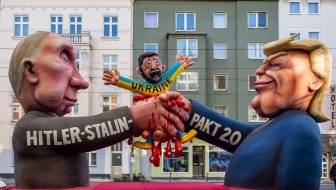Serbian President Boris Tadic said on Friday Serbian-Croatian relations were the best in the past 20 years and that there remained "series" of problems that had to be addressed.
Those problems should be solved rationally and not in a heated atmosphere, Tadic told a press conference after a summit of Southeast European heads of state, calling on the media to contribute to a positive atmosphere for solving those problems.
"As you see, we are solving them, step by step and objectively. Our political relations today are the best in the past 20 years of our common history and this is good."
Tadic said those relations were not good enough but he saw a positive trend and felt that the two countries had excellent prospects, adding that "there's no need now to be disappointed because sparks fly about a certain problem."
One should look at the main trend, he said, adding that "we can contribute, with useful optimism, to a problem-solving atmosphere in our countries."
Reminded by a member of the press of saying today that he did not like people who liked war criminals, alluding among others to Croatian Prime Minister Jadranka Kosor, and asked if he had ever criticised Serbian minister Milutin Mrkonjic, who claims that former Serbian President Slobodan Milosevic was a patriot and a hero, Tadic said he did not say that he did not like people but that he did not like it when they glorified war criminals.
"Of course I criticised him, just as I criticised Jadranka Kosor," he said, adding that he had dedicated his political life to the fight against the former Milosevic regime in Serbia, assuming many personal risks.
Tadic said he would continue the political fight against everyone who supported those who had committed war crimes and "crimes against humanity and the human race," those who he said had denied the existence of other cultures.
"We must be extremely objective in that and completely clear in the moral sense," Tadic said, adding that it was especially dangerous when heads of state or government supported people convicted of war crimes.
Those are very dangerous political acts with deep and unfathomable political and social consequences, he said.
The ninth summit of Southeast European heads of state ended with the adoption of a joint declaration expressing commitment to the pursuit of reconciliation in Southeast Europe and the building of a peaceful and prosperous European future.
On the fringes of the summit, Croatian President Ivo Josipovic met with Tadic, Bosnian Presidency member Bakir Izetbegovic, and UNESCO Director General Irina Bokova.
The next such summit will be held in Bosnia and Herzegovina, it was said at the press conference.



































